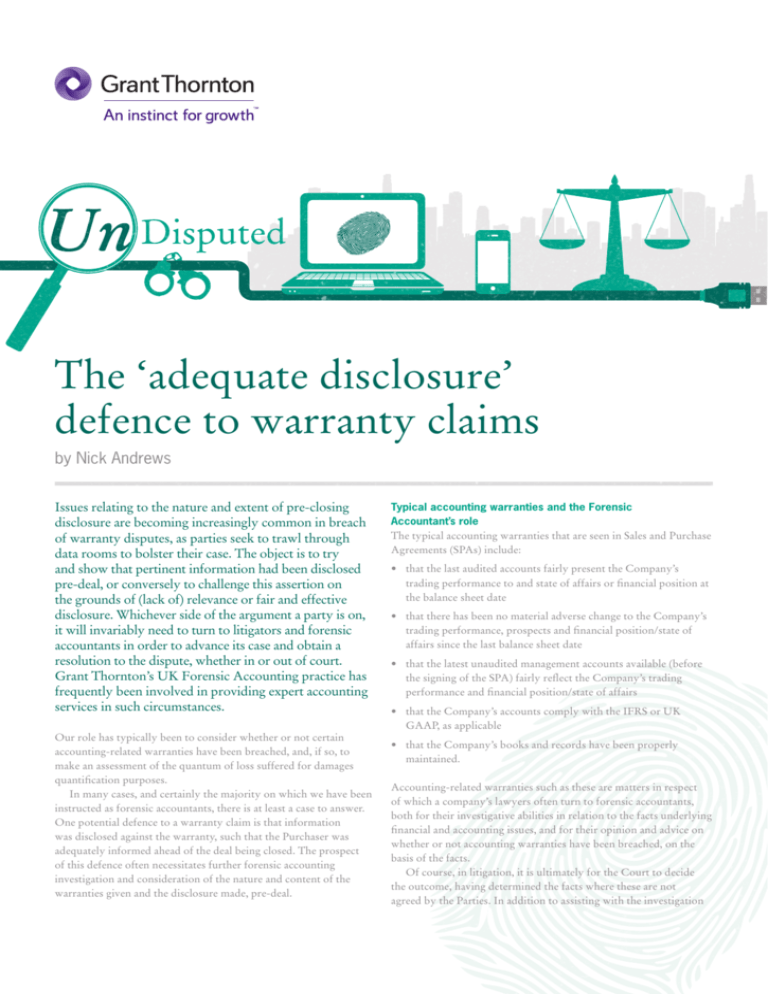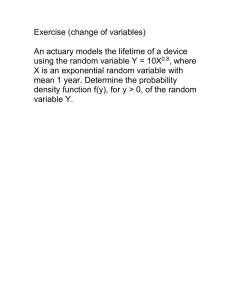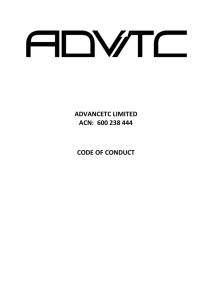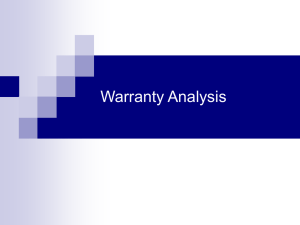
Disputed
The ‘adequate disclosure’
defence to warranty claims
by Nick Andrews
Issues relating to the nature and extent of pre-closing
disclosure are becoming increasingly common in breach
of warranty disputes, as parties seek to trawl through
data rooms to bolster their case. The object is to try
and show that pertinent information had been disclosed
pre-deal, or conversely to challenge this assertion on
the grounds of (lack of) relevance or fair and effective
disclosure. Whichever side of the argument a party is on,
it will invariably need to turn to litigators and forensic
accountants in order to advance its case and obtain a
resolution to the dispute, whether in or out of court.
Grant Thornton’s UK Forensic Accounting practice has
frequently been involved in providing expert accounting
services in such circumstances.
Our role has typically been to consider whether or not certain
accounting-related warranties have been breached, and, if so, to
make an assessment of the quantum of loss suffered for damages
quantification purposes.
In many cases, and certainly the majority on which we have been
instructed as forensic accountants, there is at least a case to answer.
One potential defence to a warranty claim is that information
was disclosed against the warranty, such that the Purchaser was
adequately informed ahead of the deal being closed. The prospect
of this defence often necessitates further forensic accounting
investigation and consideration of the nature and content of the
warranties given and the disclosure made, pre-deal.
Typical accounting warranties and the Forensic
Accountant’s role
The typical accounting warranties that are seen in Sales and Purchase
Agreements (SPAs) include:
• that the last audited accounts fairly present the Company’s
trading performance to and state of affairs or financial position at
the balance sheet date
• that there has been no material adverse change to the Company’s
trading performance, prospects and financial position/state of
affairs since the last balance sheet date
• that the latest unaudited management accounts available (before
the signing of the SPA) fairly reflect the Company’s trading
performance and financial position/state of affairs
• that the Company’s accounts comply with the IFRS or UK
GAAP, as applicable
• that the Company’s books and records have been properly
maintained.
Accounting-related warranties such as these are matters in respect
of which a company’s lawyers often turn to forensic accountants,
both for their investigative abilities in relation to the facts underlying
financial and accounting issues, and for their opinion and advice on
whether or not accounting warranties have been breached, on the
basis of the facts.
Of course, in litigation, it is ultimately for the Court to decide
the outcome, having determined the facts where these are not
agreed by the Parties. In addition to assisting with the investigation
of the factual situation, the forensic accountant’s role may involve
assessing whether or not the relevant warranties have been breached.
Forensic accountants are also often instructed in an Expert Witness
capacity, both as to whether there has been a breach and on whether
the claimant party has actually suffered loss following the alleged
breach, and if so the quantum.
Adequate pre-deal disclosure?
Where there has been an allegation of a breach of an accounting
warranty, the primary defence will usually be that, by reference
to the facts, there has not been a breach. However, it is becoming
increasingly common to see Sellers of companies mounting the
viable defence that, although there might have been a breach of
a warranty contained in the SPA, the Seller had made adequate
disclosure of the circumstances to the Purchaser before the parties
had signed the final SPA. As such, the Purchaser (allegedly) would
have been informed and aware of the situation that the warranty did
not hold good at the closing date of the transaction. Were this found
to be so by a court, any claim for breach of said warranty would not
stand up, on the basis of prior knowledge of the Purchaser before
signing the SPA.
The relevant factors
Having set out the concept of adequate pre-deal disclosure against
a warranty, what are the relevant factors that might enable such a
defence to be used, and subsequently to be challenged? And what is
the forensic accountant’s role in relation to these factors?
Twenty or so years ago, the key document in this regard would
have been the Disclosure Letter, setting out key points about the
target company that represented, inter alia, matters which did not
conform to the warranties contained in the SPA. Often, points
would be included in the Disclosure Letter following due diligence
by accountants and lawyers that uncovered items that needed to be
addressed: both material to the deal or deal price and infringing the
SPA’s warranties.
Over time, Disclosure Letters have been augmented by data
rooms, initially physical data rooms of hard copy documents and
nowadays by electronic data rooms, where soft copy access is the
order of the day.
Impact of electronic data and data rooms
As the prevalence of the electronic data room has grown, so has the
magnitude of documentation included in the data rooms. Where the
SPA deems that any item included in the data room is assumed to be
within the knowledge of the Purchaser or its professional advisers,
there is an onus on each side, when signing the SPA, to be aware of
what is in the data room.
One consequence of this is that the extent of documentary
disclosure against warranty clauses can be vast. In such circumstances,
in the event of a warranty claim, there can then be an extensive
investigation of the data room documentation in order to assess the
extent of the Purchaser’s (deemed) knowledge of the underlying
situation of the business at the date of signing the SPA. This can
involve a joint investigation conducted by lawyers and forensic
accountants in the search for key documents. Such searches typically
relate either to the areas in which a breach of warranty has been
claimed or to the basis of business valuation used by the Purchaser, to
see what documentation relevant to either is located in the data room.
For further information please contact:
Nick Andrews
Partner, Forensic & Investigation Services
T +44 (0)20 7865 2174
E nick.d.andrews@uk.gt.com
© 2013 Grant Thornton UK LLP. All rights reserved. ‘Grant Thornton’ refers to the brand under which the Grant Thornton member firms provide assurance, tax and advisory services to their clients and/or refers to
one or more member firms, as the context requires. Grant Thornton UK LLP is a member firm of Grant Thornton International Ltd (GTIL). GTIL and the member firms are not a worldwide partnership. GTIL and each
member firm is a separate legal entity. Services are delivered by the member firms. GTIL does not provide services to clients. GTIL and its member firms are not agents of, and do not obligate, one another and
are not liable for one another’s acts or omissions. This publication has been prepared only as a guide. No responsibility can be accepted by us for loss occasioned to any person acting or refraining from acting
as a result of any material in this publication.
grant-thornton.co.uk
V23174








